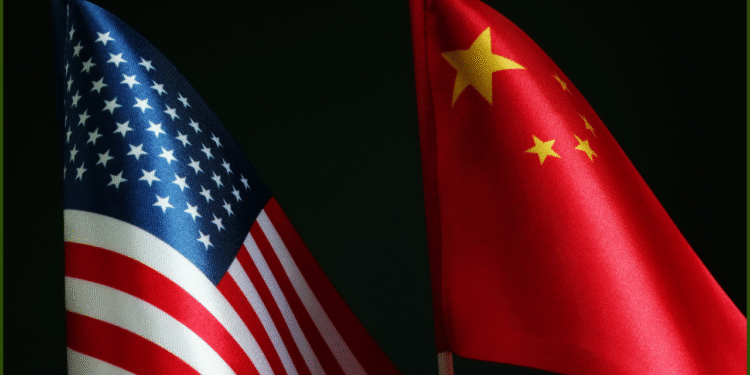U.S. President Donald Trump announced on Friday that an 80% tariff on Chinese goods “feels appropriate,” marking the first time he has proposed a specific rate as an alternative to the current 145% levies on Chinese imports. The statement comes as high-stakes trade negotiations between the United States and China are set to begin in Geneva, Switzerland, this weekend, aimed at de-escalating a trade war that has disrupted global markets.
The talks will see U.S. Treasury Secretary Scott Bessent and chief trade negotiator Jamieson Greer meet with China’s Vice Premier He Lifeng, a key economic figure in Beijing. A source familiar with the discussions revealed that China is also sending a senior public-security official, underscoring the significance of fentanyl trafficking—a major U.S. concern linked to the tariffs—in the broader U.S.-China dialogue. Trump has repeatedly tied the opioid crisis to his trade policies, citing it as a justification for earlier tariffs on China, Canada, and Mexico.
In a social media post, Trump urged China to open its markets to American goods, writing, “Open markets are the future—closed systems are outdated!” He followed with, “80% tariff on China feels right. Scott B. will handle it,” referring to Bessent. While the proposed 80% rate is a significant reduction from the current 145%, it remains notably high, surpassing the 60% tariff Trump pledged during his 2024 campaign. The figure’s reception in Beijing remains uncertain, especially as Bessent has described the current tariff levels as akin to a trade embargo.
China’s foreign ministry has criticized the U.S. approach as coercive and unsustainable, maintaining a firm stance against what it calls economic bullying. Beijing has retaliated against U.S. tariffs with 125% duties on American goods, alongside export restrictions on rare earth elements critical for U.S. tech and defense industries. Additional levies have targeted U.S. agricultural products like soybeans and energy exports like liquefied natural gas.
The Geneva talks, hosted by Switzerland, are seen as a potential first step toward easing tensions between the world’s two largest economies. Swiss Vice President and Economic Minister Guy Parmelin expressed optimism after preliminary meetings with both delegations, stating, “The fact that both sides are engaging is already a win. A path forward could reduce global strain.” He suggested that a temporary pause in tariffs during negotiations is possible, with discussions potentially extending into early next week.
Financial markets reacted cautiously to Trump’s tariff proposal. U.S. stocks, which had regained ground since February’s peak, dipped slightly after his announcement, while the dollar weakened against major currencies. Investors remain focused on the outcome of the talks, as the trajectory of U.S.-China trade policy continues to fuel market volatility.
Trump’s tariff strategy has sparked concerns about its impact on the U.S. economy, with economists warning that sustained high tariffs could drive up consumer prices, reignite inflation, and weaken demand. Public sentiment is also shifting, with recent polls indicating declining support for Trump’s trade policies as Americans face higher costs for goods like clothing, electronics, and household items. In China, manufacturers are grappling with factory closures and job losses, prompting Beijing to explore alternative markets to offset reduced U.S. demand.
White House economic adviser Kevin Hassett struck an optimistic tone, describing the upcoming talks as “highly encouraging” in an interview. “We’re seeing mutual respect and the beginnings of constructive outcomes,” he said, emphasizing the potential for progress.
The Geneva summit represents a critical moment for U.S.-China relations, with global supply chains and economic stability hanging in the balance. While both sides have expressed a desire to avoid a full-scale trade war, the path to a lasting resolution remains complex, with tariffs, market access, and geopolitical issues like fentanyl trafficking all on the table.

















































